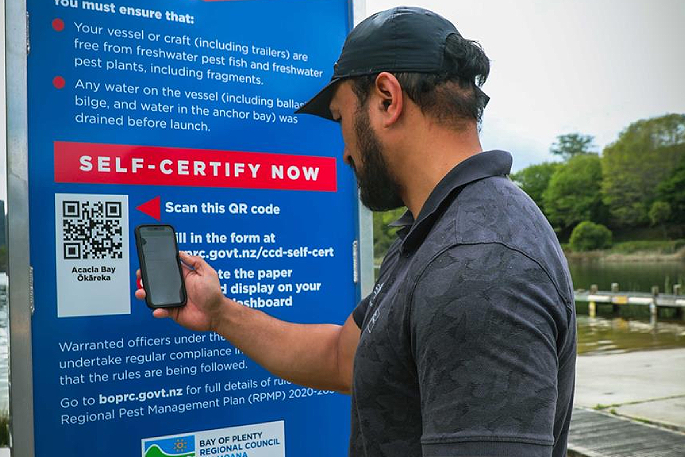Funding for freshwater biosecurity and boat ramp compliance checks around the Rotorua Te Arawa Lakes has been given a boost by Bay of Plenty Regional Council.
Additional funding by the Regional Council will enable Te Arawa Biosecurity officers to continue boat ramp checks through to the end of June, and subsequently support Ngāti Tarawhai Trust in carrying out the biosecurity safeguard checks that are currently necessary to gain access to Lake Ōkataina.
Bay of Plenty Regional Council Biosecurity Officer, Te Wakaunua Te Kurapa says that with the busy Easter period starting this weekend and the school holidays approaching, the extension of the funding is timely.
“We know that lake use will increase during the next few weeks so it’s important that Biosecurity Officers can be on the ground to ensure that boaties follow both the Regional Pest Management Plan (RPMP) self-certification rules and those set by Biosecurity New Zealand specifically to prevent the spread of gold clam.”
The Bay of Plenty is the only region in New Zealand where users of boat ramps with self-certification checkpoints are required to certify that their boat and trailer are free from freshwater pest fish and weeds.
Before launching a vessel, the self-certification form must either be submitted electronically or displayed in the vehicle used to launch the vessel or craft.
“Encouragingly the number of people completing self-certification forms has significantly jumped this summer season with more than 4400 forms completed so far. The heightened awareness of the threat of gold clams on our doorstep and the new QR code option to complete the form easily really seems to be driving this growth.
“Unfortunately, only 49 per cent of the 2,600 boats checked at public boat ramps over the last few months have successfully completed the form before launching.
“We appreciate it takes extra time to complete the self-certification and the CAN requirements, but ultimately it’s up to everyone to take personal responsibility and do the right thing every time before they head out on the water.”



0 comments
Leave a Comment
You must be logged in to make a comment.